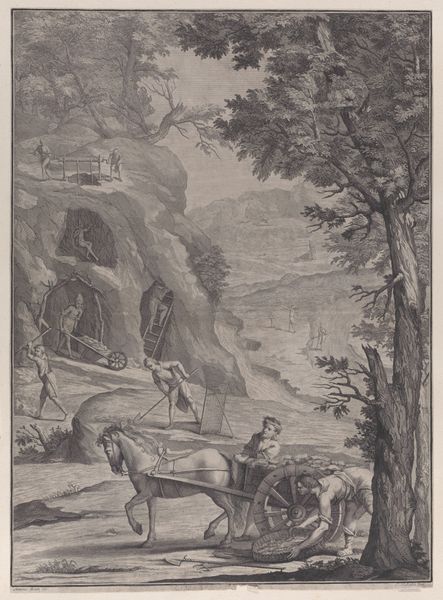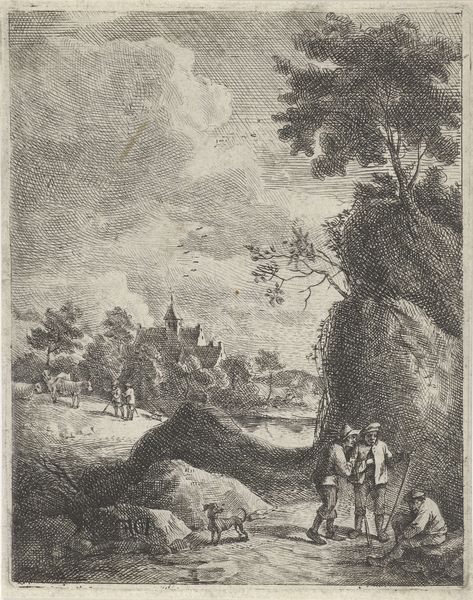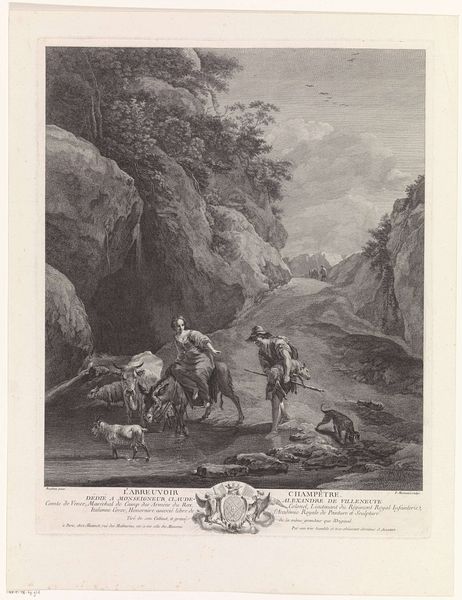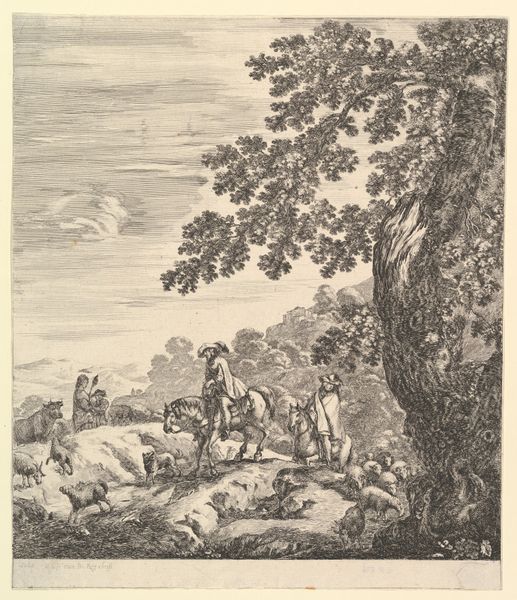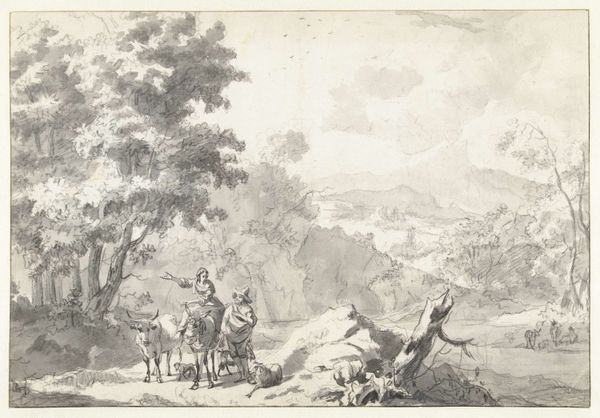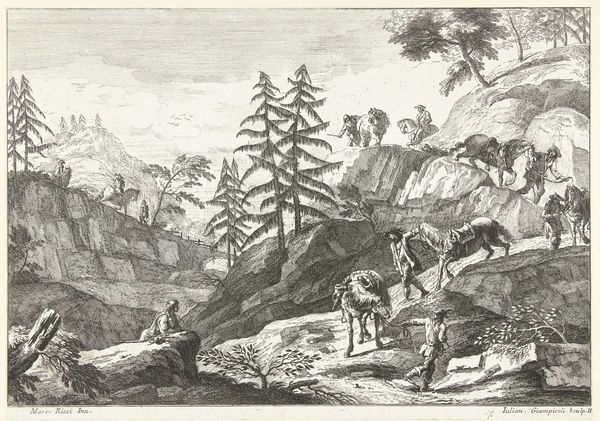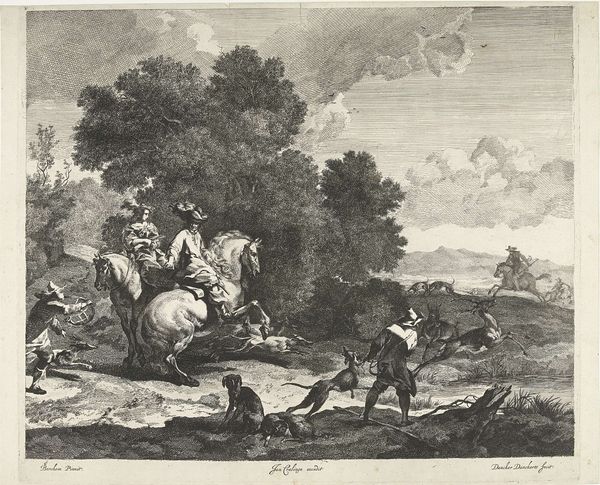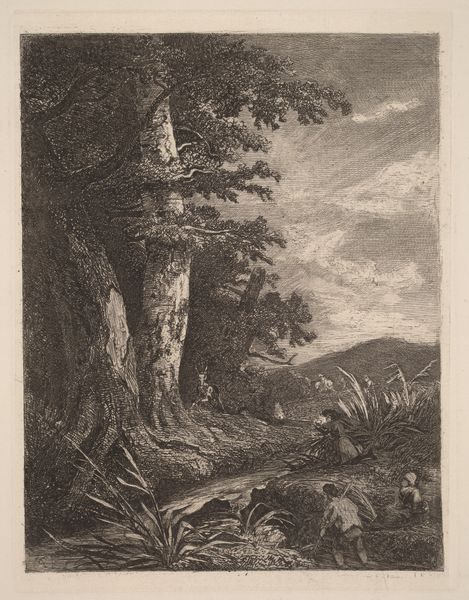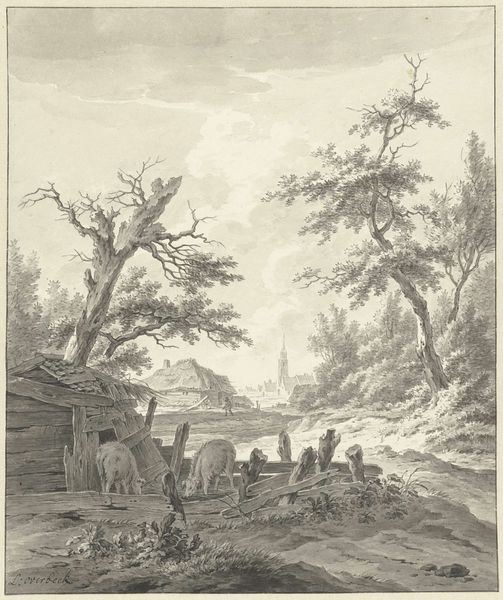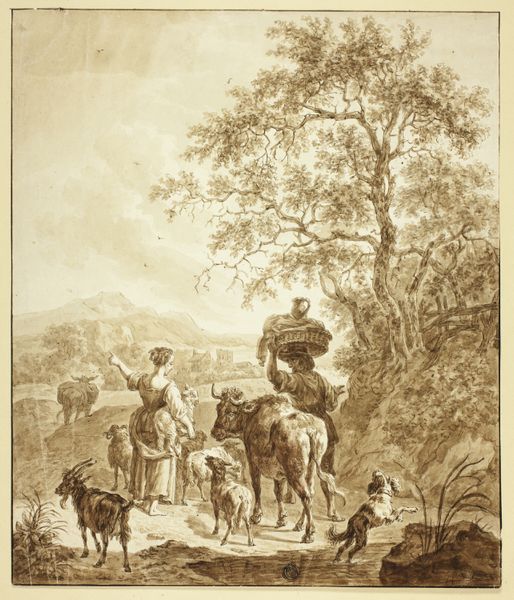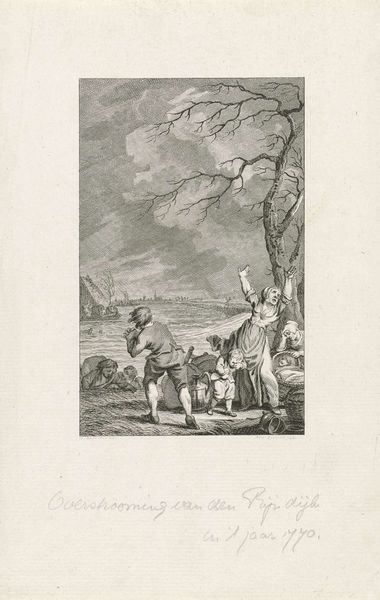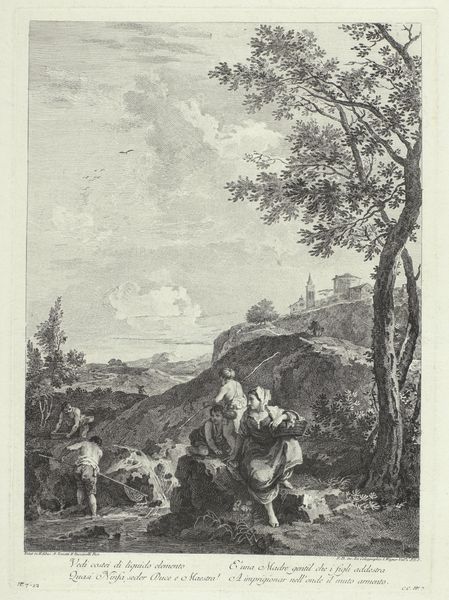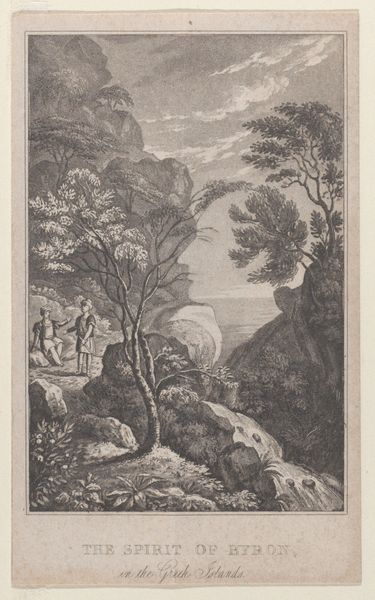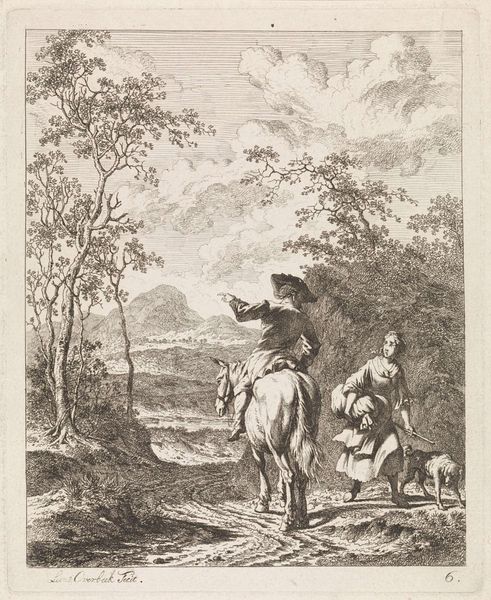
print, engraving
#
baroque
# print
#
dog
#
landscape
#
figuration
#
mountain
#
genre-painting
#
engraving
#
realism
Dimensions: height 445 mm, width 374 mm
Copyright: Rijks Museum: Open Domain
Curator: This engraving, created between 1657 and 1672, is entitled "Herders met vee op een bergpad," or "Herdsmen with cattle on a mountain path," and the print is attributed to Jonas Suyderhoef. Editor: Immediately, I'm struck by the composition; it’s divided into two clear halves, light and dark, creating this wonderful dramatic tension, emphasized by the winding path receding into the distance. Curator: Yes, the path and the positioning of the figures draws us in! Consider the cultural significance here. During this period, there was a growing interest in depicting everyday life, elevating scenes of common folk and rural landscapes. Prints like this one circulated widely, fostering a sense of national identity, reflecting a pastoral ideal and connecting urban dwellers with the countryside. Editor: I agree, and looking at it purely from a visual standpoint, the artist's mastery over line is really quite striking, isn't it? The varying weights create a sense of depth, especially in the rendering of the animals. And look how the light catches on the water. Curator: This romanticized vision, however, conveniently ignores the often harsh realities of rural life at the time. The image, distributed on a mass scale, played a role in shaping how people thought about the countryside and their connection to it. This aesthetic preference conveniently diverted from very real shifts of agrarian capital accumulation. Editor: Interesting. Still, despite knowing how loaded representations of idyllic nature might be, can we not admire the baroque dynamic unfolding between the mountain range, figures, and varying species as an interesting, energetic organization on a page? Curator: Absolutely. Analyzing it contextually reminds us of how even seemingly simple images participate in complex socio-economic exchanges of the era. Editor: Well said. Thinking about how an artist transforms such common scenes makes you contemplate both intent and result. Curator: Precisely. I hope everyone can carry with them fresh eyes toward art history after our chat!
Comments
No comments
Be the first to comment and join the conversation on the ultimate creative platform.
